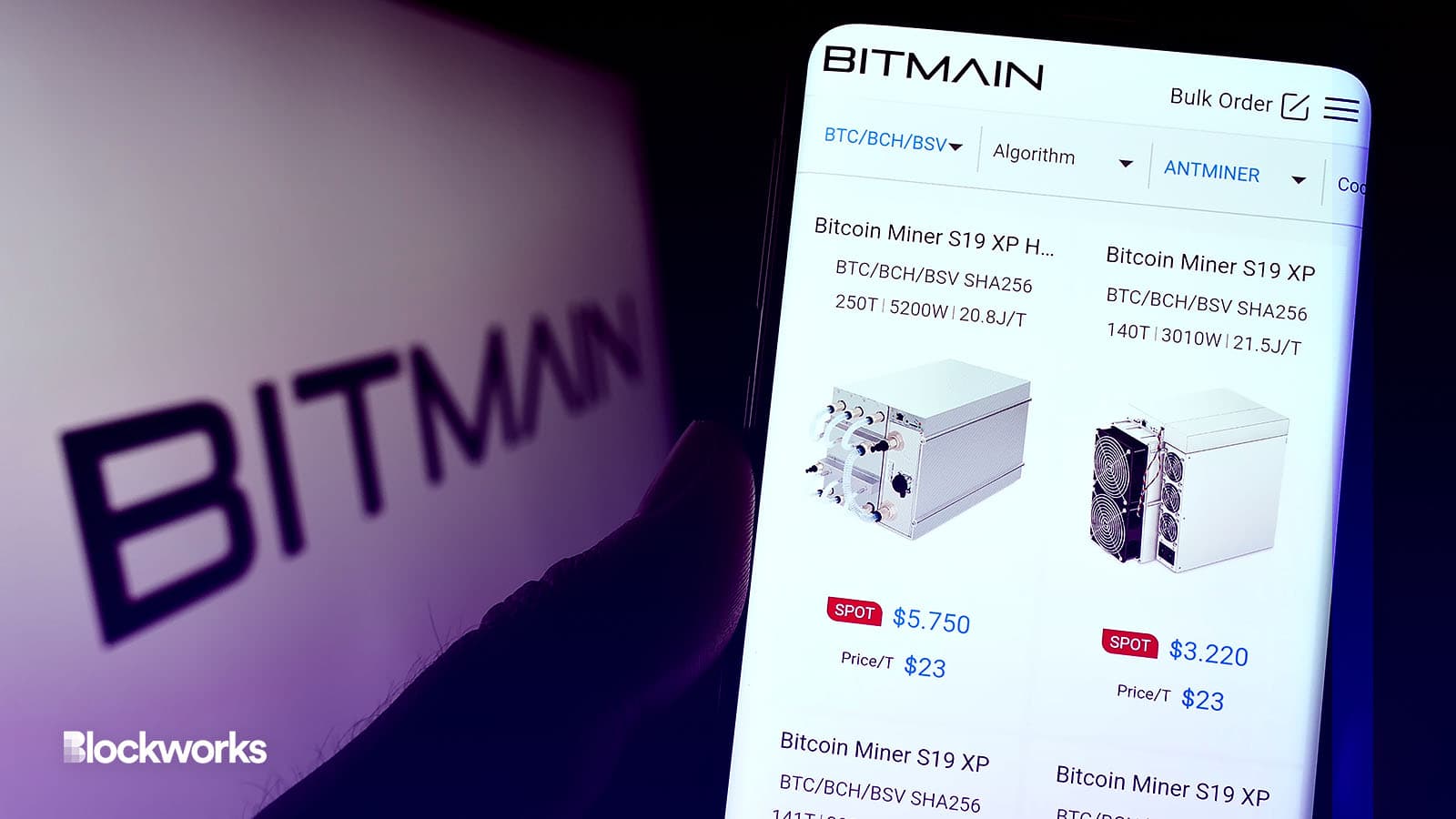Core Scientific gets $53M from Bitmain in bid to re-energize bitcoin mining business
The investment is part of a larger agreement that includes the supply of 27,000 Bitmain bitcoin miners

T. Schneider/Shutterstock, modified by Blockworks
Bitmain has agreed to invest $53 million in embattled bitcoin miner Core Scientific alongside a new hosting agreement, as the sector grapples with historically low prices.
The Beijing-headquartered ASIC supplier will plow $23.1 million in cash into the mining company, with the remainder slated for Core Scientific shares, the companies revealed Thursday.
The agreement is contingent upon a year-end approval of a Chapter 11 reorganization plan for the mining firm. Bitmain’s hosting contract with Core Scientific is intended to back its mining operations, the companies said.
It includes the supply of 27,000 Bitmain S19J bitcoin mining servers, with a maximum hashrate of 151Th/s, to Core Scientific. The servers are slated for delivery in the fourth quarter of 2023 and are expected to add 4.1 EX/s to Core Scientific’s self-mining hashrate, they said.
It comes as the mining sector stares down historically low hash prices — the expected revenue per petahash per second of hashing capability for a miner, according to the Hashrate Index.
Core Scientific says it operates more than 200,000 miners, 99% of which are Bitmain S19 models. The new hardware is expected to improve Core Scientific’s mining efficiency.
As of the end of August 2023, Core Scientific had a total energized hash rate of 22 EX/s per second, according to a statement. The two companies have also agreed to upgrade older Bitmain models hosted at Core Scientific’s facilities, aiming to further increase the company’s hashing power.
Core Scientific, currently in the throes of bankruptcy proceedings, is attempting to shore up its business after being caught up in the chaos of last year’s market rout.
CEO Adam Sullivan, recently hired in August, hopes to pull the company back on track and is anticipating an exit of its bankruptcy by year’s end — though no definitive timeframe has yet been given.
The Texas-based miner fell on hard times following the collapse of FTX which sent crypto prices reeling alongside a hike in operational costs, namely, rising electricity prices for crypto miners.
In a securities document dated Nov. 21, the company revealed it needed more cash to sustain operations through 2023 and expressed uncertainty about its capacity to secure financing or tap into capital markets.
Get the news in your inbox. Explore Blockworks newsletters:
- The Breakdown: Decoding crypto and the markets. Daily.
- 0xResearch: Alpha in your inbox. Think like an analyst.






